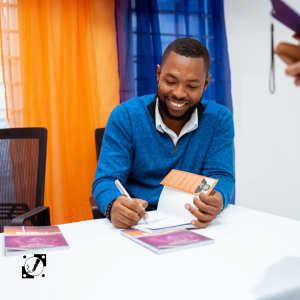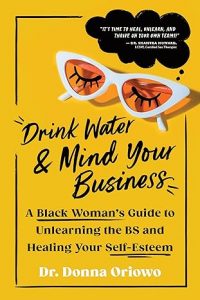The Audiobook Boom and Black Storytelling: Exploring the Power of Voice and Performance
4 min read
In recent years, audiobooks have surged in popularity, reshaping how we experience literature. With the tap of a finger, listeners can immerse themselves in stories while commuting, exercising, or winding down after a long day. Amid this boom, a particularly powerful movement is taking shape: Black authors and narrators are harnessing the dynamic possibilities of the audiobook format to amplify African American storytelling, weaving voice, culture, and performance into a vibrant, living art form.
The Rise of Audiobooks and a New Era for Storytelling
Audiobooks are no longer an afterthought in the publishing world. They are a thriving medium, with sales reaching record highs year after year. This growth has opened doors for diverse voices and narratives that have long been marginalized. For Black authors, audiobooks offer not just another platform for their work but a way to deepen the emotional resonance and cultural specificity of their stories through the power of voice.
In African American literary traditions, oral storytelling holds a sacred place. From griots of West Africa to the folktales and spirituals of the American South, Black communities have preserved history, wisdom, and identity through the spoken word. Audiobooks, in many ways, represent a digital extension of these traditions—offering an opportunity for contemporary Black voices to carry forward the legacy of storytelling in richly dynamic ways.
Voice as a Vessel for Cultural Nuance
The voice of a narrator can profoundly shape how a story is received. For African American literature, which often incorporates regional dialects, historical vernaculars, and culturally specific rhythms of speech, narration is not merely about reading text aloud—it’s about embodying the world of the story.
When a Black narrator reads a Black author’s work, there is often an intuitive understanding of the cultural layers embedded in the prose. Listeners can hear the warmth of a grandmother’s wisdom, the sly humor of a cousin’s side-eye, the heavy sorrow of intergenerational trauma, or the soaring joy of communal triumph. Performances by narrators like Bahni Turpin, JD Jackson, and January LaVoy, among others, bring these dimensions to life with authenticity and grace, adding emotional depth that the printed word alone may not fully capture.

A Dynamic Collaboration Between Authors and Narrators
Many Black authors are increasingly involved in the audiobook production process, carefully selecting narrators who can honor the spirit of their work. Some, like Jason Reynolds and Nic Stone, even narrate their own books, bringing personal passion and a lived-in texture to their performances.
This collaboration between author and narrator can be transformative. It allows for a richer interpretation that acknowledges the intricate cadences of Black speech and the cultural reference points that are often central to the story. In genres ranging from historical fiction to contemporary romance and speculative fiction, Black storytellers are using voice and performance to assert control over how their stories are told—and how they are heard.
Expanding Access and Creating Community
The accessibility of audiobooks also plays a role in widening the audience for Black literature. For some, hearing a story performed feels more approachable than reading dense text, especially for those with visual impairments or learning differences like dyslexia. Moreover, audiobooks create an intimate listening experience that can foster empathy and understanding across cultural lines.
Beyond individual consumption, audiobooks are becoming a communal experience, with listening parties, book clubs, and social media discussions springing up around major releases. These spaces celebrate not just the story, but also the artistry of performance, allowing Black storytelling to thrive in both traditional and innovative ways.
The Future of Black Storytelling in the Audiobook Era
As technology continues to evolve, the possibilities for audiobook storytelling are expanding. Multi-cast productions, soundscapes, and immersive performances are pushing the boundaries of what an audiobook can be. Black authors and narrators are at the forefront of this innovation, blending the ancient art of oral storytelling with the cutting-edge potential of modern media.
In this audiobook renaissance, voice is not just a medium—it is a message. It is an assertion of presence, history, and humanity. And as more Black stories find their voice in this format, the rich, resonant tradition of African American storytelling grows stronger, reaching listeners in ways that feel profoundly new and deeply familiar all at once.
Our picks
The Hate U Give by Angie Thomas, narrated by Bahni Turpin — a stunning audiobook performance that captures the emotional highs and lows of the story.
Long Way Down by Jason Reynolds, narrated by Jason Reynolds himself — a poetic novel told in free verse, elevated even more by the author’s voice.
The Water Dancer by Ta-Nehisi Coates, narrated by Joe Morton — a rich, immersive audiobook that blends historical fiction with magical realism.
Such a Fun Age by Kiley Reid, narrated by Nicole Lewis — sharp, smart performance matching the novel’s social insights and humor.
Children of Blood and Bone by Tomi Adeyemi, narrated by Bahni Turpin — a fantasy novel where the vibrant world-building feels even more vivid through Turpin’s voice.
Black Cake by Charmaine Wilkerson, narrated by Lynnette Freeman and Simone McIntyre — a multigenerational saga with lush storytelling in the audio format.







